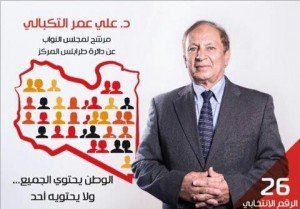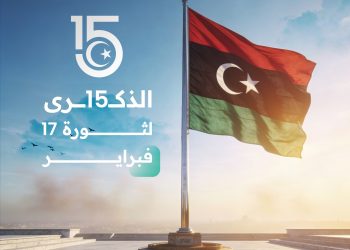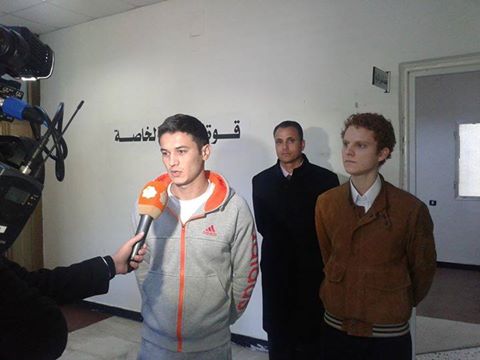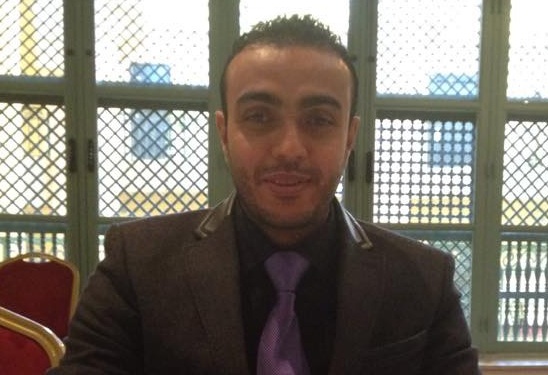By Libya Herald reporter.

Malta, 4 February 2015:
House of Representatives member Ali Tekbali, speaking to Libya Herald, believes that at least some . . .[restrict]of the recent terror attacks and incidents in Tripoli are attributable to Islamic State (IS).
Speculation as to whether IS is present in Libya, and specifically Tripoli, has continued with every new incident.
IS has either purportedly claimed responsibility for, or has been blamed for, the car bomb outside the Algerian embassy, the attack on Corinthia hotel and the separate attacks on the two Tripoli Revolutionaries’ Bridage sites in Al-Hadba and Fornaj. There have been other incidents linked to them too.
However, there is no solid indication yet as to who was really responsible for these attacks. IS supporters have claimed to have carried out some of these attacks.
For the attacks on the Tripoli Revolutionaries’ Brigade sites, the IS claim was that the attacks were in retaliation for the Brigade’sinvolvement in ending last week’s deadly assault on the Corinthia Hotel.
Nevertheless, these claims cannot be verified. IS has claimed responsibility for almost every recent attack in Tripoli, including the Corinthia raid. But some of these incidents could be totally unrelated.
Some could be simple criminal acts, or the settling of scores between militiamen or militias, or acts of personal revenge. The poor security situation in Tripoli and weak central security organization and infrastructure has meant that there is a perfect security vacuum for criminal and terror activities.
The Salvation Government of Omar Al-Hassi has been adamant that there is no IS presence in Tripoli. For example, it blamed the Corinthia hotel on former Qaddafi Revolutionary Guards and their Hit Squads and the Hafter Karama faction in eastern Libya.
The increase in attacks on Libya Dawn forces has also been interpreted as an internal split between the Islamist coalition that is now controlling Tripoli. The analysis presumes that the more moderate militias of Libya Dawn were in unity with the more extreme Ansar Sharia and IS, a presumption which in itself is questioned.
The Islamist coalition split is partially based on recent social network posts by IS targeting (relatively moderate Islamist) militias such as Abdulrauf Kara’s Nawsy brigade. Nawsy’s reaction to the warning in declaring a ‘’state of alert’’ yesterday gave credence to the IS warning and the Islamist coalition splits.
Tekbali, is clear, however. ‘‘Daesh (Islamic State), when entering any place demand all others to give them loyalty’’, he explained ‘‘Today in Tripoli’’, he explained referring to the recent incidents, ‘‘this is what they (IS) are doing. All other factions are targets’’, he added emphatically.
However, the strains amongst coalitions are not just beginning to appear in the GNC/Libya Dawn coalition. The Hafter/Karama/HoR/Thinni government are experiencing their own troubles too.
News that Prime Minister Abdullah Thinni received some rough treatment during his recent visit to Benghazi, were not denied by Tekbali.
Thinni’s plane was initially refused permission to land at Benghazi’s Benina airport for having failed to get clearance from the Hafter/Karama leadership to land in what they had earlier declared a military zone.
‘‘Thinni has never been a fan of Hafter’’, Tekbali admitted. ‘’Any chance to split will be seized at’’, he added cryptically without wishing to clarify further.’’
The HoR member did not attempt to conceal tensions in the HoR either. ‘‘The HoR has its problems’’, he freely admitted. ‘’But good people are still in control’’, he added adamantly to Libya Herald’s enquiry about HoR internal tensions. [/restrict]








